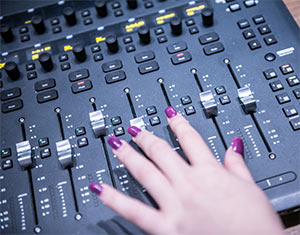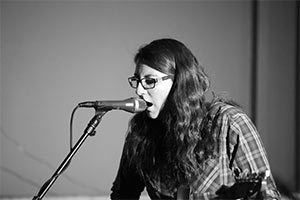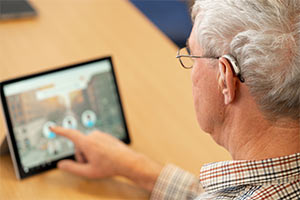The Cadenza Challenge: Music Remixing for Hearing Aids

How can we process and remix music so it sounds best for those with a hearing loss? The Cadenza project is defining what music personalised for someone with a hearing loss should sound like and exploiting the latest in machine learning to create improved listening experiences.
The improvement in music is being achieved by running a series of open signal processing challenges. Competitors are asked to personalise and enhance music, through processing and/or remixing.
"Running competitions is a great approach, because it will grow a new research community devoted to making music more accessible to all. Machine learning has revolutionised audio research, but too often it doesn't consider the diversity of listeners." - Professor Trevor Cox, The University of Salford.
People with a hearing loss can experience problems when listening to music. 430 million people in the World have a disabling hearing loss, with this number increasing as the population ages. Poor hearing makes music harder to appreciate. This can mean picking out lyrics or melody lines is more difficult, and music becomes duller as high frequencies disappear. This reduces the enjoyment of music, and can lead to disengagement from listening and music-making, reducing the health and well-being effects we otherwise get from music. Hearing aids often work poorly for music because they’re optimised for speech. As well as improvements to hearing aids, the project will look at other opportunities, such as improving music from consumer devices and from mixing desks at live venues.
The project is run by Universities of Salford, Sheffield, Leeds and Nottingham and funded by the Engineering and Physical Sciences Research Council (EPSRC). Industrial partners are BBC R&D, Google and Logitech; user engagement via Royal National Institute for the Deaf (RNID), and additional academic input from Oldenburg University.
For more information, please visit the Cadenza Challenge website.
Sign up to our Google group for alerts about the challenges and to help shape the challenges.




